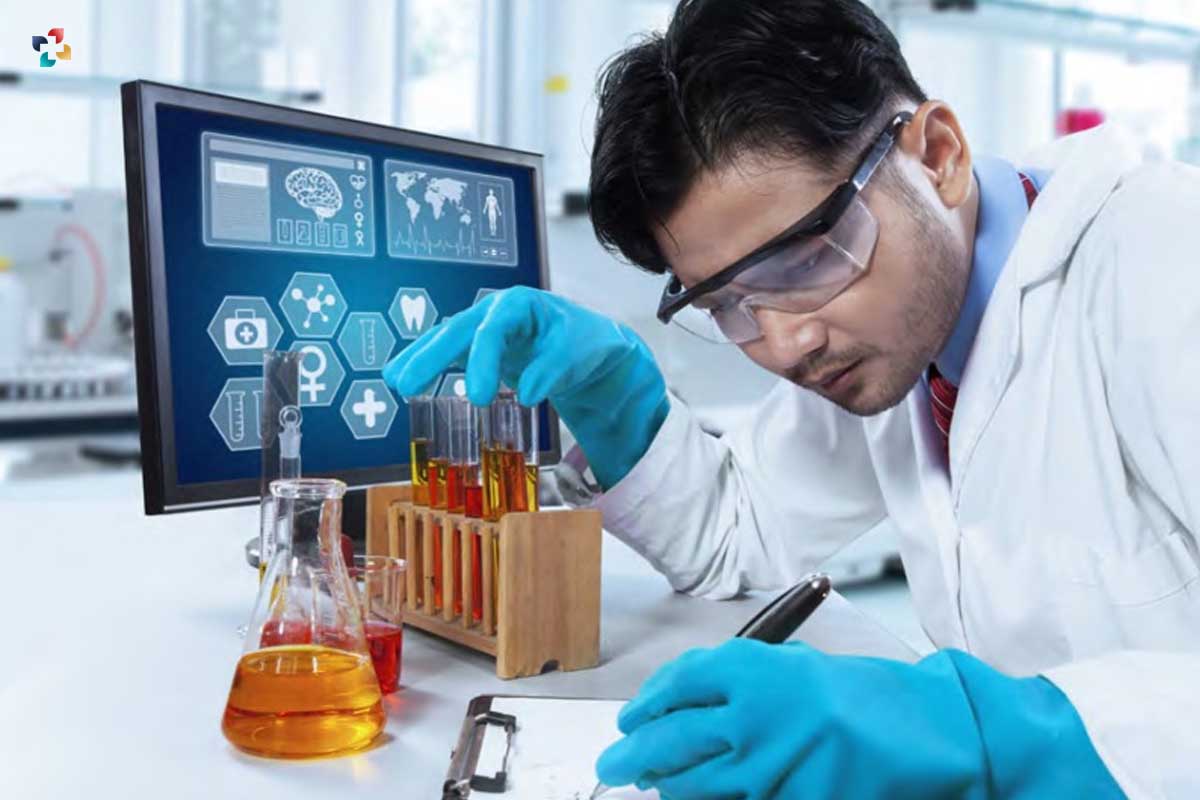In the realms of healthcare, life sciences, and pharma, riding the crest of a wave of technological advancement is nothing new. The Human Genome Project was only one example of the tsunami of innovation that swept over the globe in the 1990s. It has fundamentally altered the manner in which we think about life.
In addition to the essential sequence information, AI Is Transforming Lifesciences, the data store contains underlying mutations and patterns of gene interaction. Researchers working on the Human Microbiome Project have discovered more than one hundred trillion different microorganisms that we interact with and may have either beneficial or detrimental impacts on our health. [citation needed]
The artificial intelligence (AI) that we develop will serve as the surfboard that carries us through these difficult times. In a nutshell, it is the study of creating computer programs and other forms of technology that are capable of doing difficult tasks while emulating levels of intellect comparable to those of humans.
The large volume of unstructured data, which consists of text, pictures, and sounds, may be digested in a quicker and more effective way by putting in place advanced AI systems. Using computer science programming, AI is Transforming Lifesciences.
Here are 8 Ways AI is Transforming Lifesciences;
1. Creating Personalized Medical Treatments
When it comes to the dose of medicines, our current approach is based on the idea that “one size fits all.” When formulating a treatment plan or determining the appropriate dose, very little information about the patient is considered.
AI platforms, which have the potential to be game-changing technologies, have the ability to access digital patient health information and recommend the most effective course of therapy. In addition, since AI constantly monitors a number of factors, it may be able to assist medical professionals in modifying the dosage or, in the event that the illness undergoes a mutation, in revising the treatment and introducing an option that is more efficient.
Enlitic is a company that specializes in the development of deep-learning medical tools. These tools scan unstructured patient information (such as medical histories, photographs, blood tests, EKGs, and genomic reports), and they assist physicians in meeting the real-time requirements of their patients.
2. Research and Production of New Medicines
Screening a huge number of candidate compounds is a strategy that is laborious, time-consuming, and costly, and it is required in the process of developing new drugs. Artificial intelligence-based systems are superior to human efforts in terms of speed and accuracy when searching and cross-referencing across vast and complicated datasets.

This leads to a list of prospective medication candidates that are more precise and can be generated in a shorter amount of time.
3. Introducing New Treatments and Medications to the Market
To bring a brand-new medication to consumers often requires many decades of research and development as well as billions of dollars. AI is Transforming Lifesciences to standardize the presentation of data that has been collected from a wide variety of institutions, such as hospitals and research laboratories.
In addition to this, AI is Transforming Lifesciences aids in the development of better healthcare networks and protocols, which speeds up their entry into the market at a price that is affordable.
4. The Application of Artificial Intelligence to the Planning of Clinical Trials
The role that artificial intelligence plays in the design of clinical trials, the estimation of the optimal sample size, and the implementation of these trials remotely on participants located over a greater geographical region is becoming more essential. This, in turn, brings a reduction in costs and an increase in the likelihood of collecting data that is both accurate and useful.
5. Making a Diagnosis of a Disease
Erroneous forecasts and diagnoses of illness might result from the presence of a high number of cases as well as incomplete medical data. Buoy Health is an artificial intelligence (AI)-based chatbot that listens to the patient’s health concerns and accompanying symptoms, and then, with the help of algorithms, directs the patient to the appropriate treatment.

AI systems have already been developed that can search through medical pictures, such as those produced during radiation and mammography, and detect the illness.
6. Introduction to Robotic Surgical Technology
AI is Transforming Lifesciences Through the use of the da Vinci robot, it is now possible to carry out surgical procedures in areas that were previously inaccessible. Robotic surgery is a relatively new subject that is generating a significant amount of attention.
After receiving proper instruction, a robot will be capable of carrying out each task with the required level of precision and consistency. Regardless of how long the operation takes, the surgeon will do it with the same level of precision and consistency throughout the whole procedure. It is said to be superior to human performance, which will inevitably worsen with the passage of time.
7. Management of Supply Chain Operations and Logistics
Artificial intelligence (AI) also has the potential to revolutionize the drug manufacturing and pharmaceutical industries. For example, artificial intelligence makes it simpler to anticipate customer needs and, as a result, to adjust production levels accordingly.
8. Applications in Publishable Scientific Research
Technologies based on artificial intelligence are now undergoing a significant transformation in the publishing process. It is helpful in addressing major challenges such as finding new peer reviewers, preventing plagiarism, and locating fabricated data.

This would not only help in expediting the transmission of scientific findings and eliminate the influence of human bias, but it will also help maintain the quality of published works. Like above in many ways, AI is Transforming Lifesciences.
Also Read: AI in the Pharma Industry











